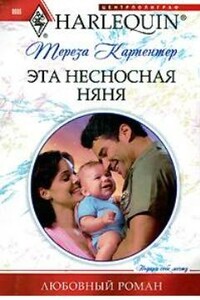The following week, I marched back into court and delivered the rest of the damned summation. I don’t know that I did such a brilliant job of it. Probably not. The point is, I finished. I didn’t give in to despair. The memory of that experience gave me a world of confidence during the years, and trials, to come. As Lillian Hellman once said, “Half the battle is being able to take the punishment.”
We got our conviction. Harvey transferred out to a quieter post in Santa Monica. I moved into his office and became one of five deputies at Special Trials, the unit that handles L.A. County’s high-profile cases. Over the next five years, I caught some of the cases that might ordinarily have come to Harvey. One of these was the case of People v. Robert Bardo.
The Bardo case was known more popularly as the Rebecca Schaeffer case, after its victim, a pretty twenty-one-year-old actress who played Pam Dawber’s sister on the sitcom My Sister Sam. An obsessed fan named Robert Bardo wrote Rebecca a series of letters. Unfortunately, she wrote one back. It was just a generic thank-you-for-your-interest, but it was enough to make the twisted son of a bitch think they had made some kind of connection. He hired a private investigator, who turned up Rebecca’s address. Then he showed up at her apartment with a bag containing copies of his letters to her, a paperback of The Catcher in the Rye, her publicity photo, and a gun.
When he rang the bell, Rebecca answered it herself. That caught him off guard. I guess he was expecting she had servants to sweat the small stuff. She was gracious enough to shake his hand, but then eased the door shut on him. Bardo, apparently offended by the rebuff, retreated to a nearby restaurant to collect his wits. He went into a men’s rest room to load the last chamber in his handgun. Then he went back to Rebecca’s apartment. This time, when she came down to answer the buzzer, he gestured that he wanted to give her something. For whatever reason, she opened the door. And he shot her point-blank through the heart.
Bardo was my first “celebrity” case. I didn’t ask for it; it simply landed on my desk. The deputies at Special Trials do not as a rule clamor for big assignments like hounds after hush puppies. Our office has learned from hard experience that every celebrity case carries with it the potential for disaster. Though it can be a career-maker, as the Manson case was for Vincent Bugliosi, it is just as likely to be a sinkhole. And the more titanic the celebrity, the deeper the potential drop.
When Bardo landed on my desk, I’d never really had any experience with the press. To me, the attention this case attracted only created annoying complications. The trial was covered, gavel-to-gavel, by a new cable network called Court TV. In the Bardo case, the fact that hearings were broadcast seemed to have little impact on the proceedings. The real problems began when TV and print reporters “interviewed” witnesses, causing several to drop out of sight before we could get to them. Journalists invariably wound up telling their sources things about the case, which meant that the integrity of the witnesses’ memory was compromised. Only after I sat down with each of them and did a careful remedial interview was I able to get clean statements, unencumbered by hearsay.
It was my job to convict Bardo of the heinous crime of murder while “lying in wait”-one of several “special circumstances” that can put a defendant in line for the death penalty.
Bardo was claiming he suffered from a peculiar if convenient mental deficiency that precluded premeditation. Had he made this argument fly, he would have avoided the special-circumstances sanction. The defense hired Park Dietz, a psychiatrist of national renown, to examine Bardo. Then it submitted two hours of videotaped interviews between the two, offered as proof that the defendant could not have premeditated his gruesome crime.
At one point on tape Bardo reenacted his killing of Rebecca Schaeffer. As I watched that scene, something bothered me. I rewound it and watched it again. And again.





